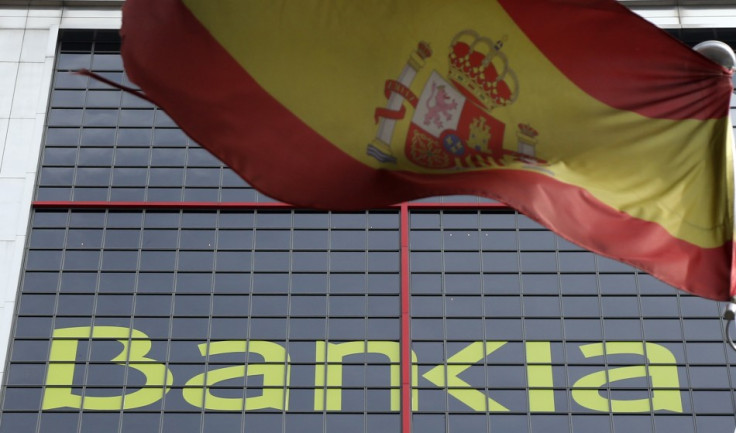Spain's Prime Minister Mariano Rajoy Pleads with ECB for Bank Aid
Shock plea for recapitalisation of Spanish banks to drag country out of difficulty shake markets

Spain is pleading with European institutions to help recapitalise the country's banks to help drag Spain out of a situation of "extreme difficulty."
The Spanish prime minister Mariano Rajoy's comments have caused concerns for market players as the country only recently revealed that its treasury has planned to auction up to €2bn worth of bonds this week.
Majoy also added that Europe should prove that the unity of the European Union countries was strong and that the euro was "irreversible" by forging a banking union, while the budget minister in the centre-right government, Cristóbal Montoro, highlighted fears that Madrid "does not have the door to the markets open" because the country has a high perceived risk of its sovereign debt.
On 30 May, media reports revealed that the European Central Bank (ECB) "rejected" Spain's plan to recapitalise state-owned Bankia with government debt. The ECB issued a denial.
"Contrary to media reports, the European Central Bank has not been consulted and has not expressed a position on plans by the Spanish authorities to recapitalise a major Spanish bank. The ECB stands ready to give advice on the development of such plans," said the bank.
However, Spain's economy minister, Luis De Guindos, told lobby reporters at Spain's parliament the same day that Bankia's capital needs would be met through bond sales by the Fund for Orderly Bank Restructuring which has about €4bn - or €15bn shy of the minimum requirement for Bankia's solvency.
On 5 June, two sources said that Bankia , Spain's fourth-largest bank, could get less than the €19bn in aid it has asked for, prolonging uncertainty surrounding a rescue that has added to fears that Spain itself would need a bailout.
The €19bn would be on top of about €4.5bn Madrid has already put into the bank.
On 21 May, De Guindos hit back at critics after some suggested that the Spanish banking sector may have to receive a significant cash injection in order to stay afloat.
According to the reports, De Guindos said at an event in Madrid that the country's banks did not need to be bolstered by European rescue funds, despite the banks having the largest shortfall in capital on their balance sheets, according to European Banking Authority (EBA) data, which was critical over creating a cash cushion in the event of a significant crisis in the markets.
According to the European Banking Authority, Spanish banks had a €26.1bn shortfall in banking capital requirements - the bufferzone needed to keep them afloat in case of severe market conditions.
In a breakdown of EBA report results, Banco Santander made up for a substantial portion of the shortfall with €15.3bn needed.
© Copyright IBTimes 2025. All rights reserved.






















